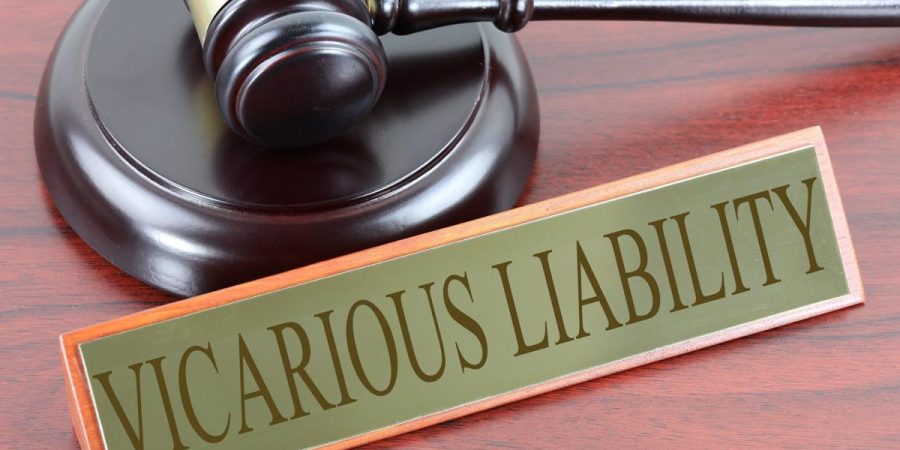Corporate Vicarious Liability Singapore: When Are Employers Responsible For Employees’ Misdeeds?
We often think of responsibility as attached to the individual. If someone related to you does something wrong, you shouldn’t be held at fault, right? Unfortunately, when it comes to the law, such distinctions are not so simple. There are situations where employers can be held liable for their employee’s misdeeds. Such situations involve a type of business liability, called corporate vicarious liability.
When an employee commits a misdeed and is unable to bear the financial costs of their actions, their employer could potentially be held responsible in their place. This arises from the simple fact that companies or employers are usually protected by insurance.
There is a two-stage process to determine when you as an employer can be held responsible for your employee’s misdeeds.
Stage 1: Special relationship capable of giving rise to corporate vicarious liability
Although most cases of corporate vicarious liability will stem from an employee-employer contract, there need not actually be a contract in place for the employer to be held liable. Instead, the courts will examine whether the relationship between two parties has the characteristics of an employer-employee contract. If the relationship is similar to a worker and his employer, then a “special relationship” can be established.
There are five main features that exist in a “special relationship”:
#1. The company or employer is more likely than the employee to be able to compensate the victim and could be expected to have insured against the liability;
#2. The misdeed was committed as a result of activity the employee was carrying out on behalf of the employer;
#3. The employee’s activity is likely part of the business activities of the company or employer;
#4. The employer, by employing the employee to carry out the activity, would have created the risk of the misdeed being committed by the employee; and
#5. The employee would, to a greater or lesser degree, have been under the control of the employer at the time the misdeed was committed.
Other factors such whether the employee is paid CPF, whether the employee is provided equipment, and the exact wording of any contractual agreements are considered by the courts.
If the courts determine that a “special relationship” exists, you already halfway there to being held vicariously liable for your employee’s actions.
Once/if your employee commits a misdeed and a legal complaint is filed, step 2 will involve determining whether the company can actually be vicariously liable.
Stage 2: Sufficient connection giving rise to corporate vicarious liability
For a company to be held vicariously liable for their employee’s misdeeds, the courts will examine the level of authority the employer gave to the employee. If the company gave broad authority to the employee to commit his misdeeds, and the company did so to further their own interests, then the company can be held liable for their employee’s actions.
Actual vicarious liability would depend on the factual assessment of the situation and context-based. In the case that these factors compel a finding of vicarious liability, the company or employer would be held accountable for the misdeed and liable to compensate the victim.
Singapore’s laws on the vicarious liability of employers
In Singapore, here exist specific statutes that impose liability on a company or employee for the criminal conduct of their employees. For example, under Section 27(b) of the Sale of Food Act imposes the same criminal liability on the company or employer for food sales, even if the company was unaware of the employee’s actions. As you can see, certain statutory regulations impose a greater standard of care on the part of employers. It is thus crucial for business owners to be familiarize themselves with any statutes on vicarious liability that may govern their particular industry.
Corporate vicarious liability laws in Singapore are important, because they provide a recourse for victims who have been defrauded or injured by a company’s employees to gain restitution. Corporate vicarious liability laws also have an important policy imperative, because they create a safer and more equitable society by compelling employers to institute at least basic safeguards against employee dishonesty.
Corporate vicarious liability laws also demarcate the individual responsibilities/culpabilities between the employee, employer and the victim to properly compensate for damage that has been done. For the employee, they will not have to be held legally responsible if they were simply doing the job that was assigned to them. For the employer, they will not have to be held liable when the misdeed was not a consequence of their authorisation, or regular business activities. For the victim, they will not be left hanging simply because the employer attempts to pass all responsibility to their employee. Most employees who commit criminal acts often will not have the financial resources to adequately compensate their victims, which is why vicarious liability laws are an important form of consumer/societal protection.
Have your employees committed misdeeds? Make sure you get proper legal and HR advice.
If your employees have committed misdeeds, speaking to a lawyer is a good idea to ascertain whether your company has legal exposure. Beyond legal advice, it’s always helpful for business owners to seek HR advice to examine how the company can prevent such incidents from repeating themselves.
HRMatters21 is a leading provider of corporate HR consulting in Singapore, with over 20 years of experience consulting for renowned companies.



